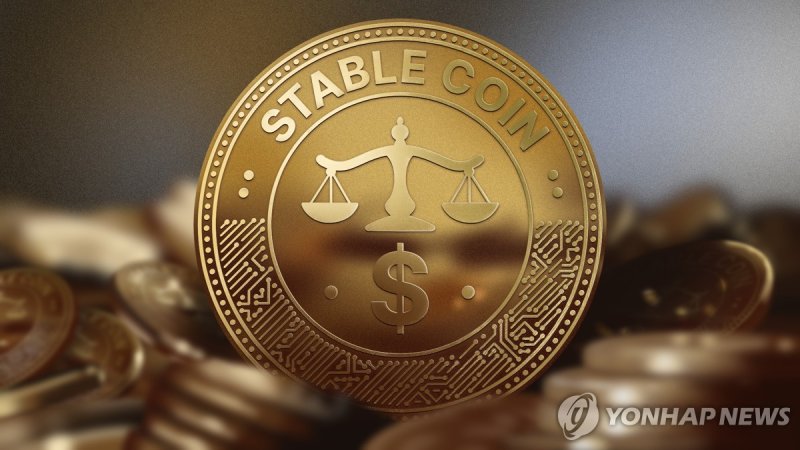Issuers of 'Stablecoin' Have Different Dreams... "First, Legalization" [Crypto Briefing]
- Input
- 2025-08-25 13:27:05
- Updated
- 2025-08-25 13:27:05
Bank of Korea: "Stablecoin, Gradual Expansion After Bank-Centric Approach"
National Assembly Bill is 'License System'... Issuance Possible Upon Passing Review
Fintech and Virtual Asset Industry: "No Standards to Discuss"
Financial Services Commission to Submit Government Plan in October... "Possibility of Lengthy Discussion"
National Assembly Bill is 'License System'... Issuance Possible Upon Passing Review
Fintech and Virtual Asset Industry: "No Standards to Discuss"
Financial Services Commission to Submit Government Plan in October... "Possibility of Lengthy Discussion"

[Financial News] Heath Tarbert, the executive director of Circle, the issuer of the dollar stablecoin USDC, visited Korea and held consecutive meetings with the Governor of the Bank of Korea and officials from the four major commercial banks, accelerating discussions on the introduction of the Korean won stablecoin. However, differences remain between the monetary authorities, who adhere to a 'bank-centric' approach, and the legislature, which advocates market opening through a 'license system', predicting difficulties in the legalization process.
According to the virtual asset industry on the 25th, Tarbert held meetings with the Governor of the Bank of Korea, Lee Chang-yong, and officials from the four major commercial banks, including KB Kookmin, Shinhan, Hana, and Woori Bank, starting from the 21st. Although the specific details of the meetings have not been disclosed, it is reported that they discussed cooperation plans for dollar and won stablecoins.
Tarbert's focus on meetings with the banking sector is interpreted as weighing the possibility that commercial banks will be the issuers of the won stablecoin. The Bank of Korea has also consistently adhered to the 'bank-centric stablecoin issuance'. Previously, Governor Lee emphasized on the 19th that "it is desirable to introduce it starting with banks and then gradually expand."
However, fintech companies have already thrown their hats into the ring for the won stablecoin. Naver, Kakao, and Toss are all attempting to enter the stablecoin market, with Naver Pay and Toss discussing collaborations with Upbit and Bithumb, respectively.
The National Assembly is also leaning towards the fintech companies' stance. All four stablecoin-related legislative bills currently proposed in the National Assembly adopt a 'license system'. The core is that issuance is only possible for businesses that have received approval after review by the Financial Services Commission. Ando Geol, a member of the Democratic Party of Korea who led the proposal of the stablecoin bill, also stated, "Stablecoins are currencies issued and circulated by the market system."
Professor Jeong Ji-yeol of Hanyang University Business School stated, "For the Bank of Korea, stablecoin distribution through commercial banks is necessary to maintain the authority's influence, so they have no choice but to propose such a plan," adding, "However, fintech companies and other private sectors must also engage in stablecoins to create new markets. For example, in the case of Naver, they could use the won stablecoin in Southeast Asian countries through 'LINE'."
In the fintech and virtual asset industry, there is a strong call for establishing clear standards as soon as possible. It is difficult to draw a specific business blueprint in a highly uncertain situation. A virtual asset industry official said, "There was a discussion to divide roles in broad terms, such as issuance by fintech and distribution by exchanges, but it has not progressed beyond that," adding, "We are just waiting for the outline of legalization to be established."
However, since four different bills have been submitted from different offices and none have even been referred to a subcommittee, it is expected to take some time before actual legalization. When the Financial Services Commission submits a government plan in October, including issuance requirements, collateral management, and internal control systems for the won stablecoin, legislative discussions are expected to proceed. It is likely that the plan will be proposed through the office of Kang Jun-hyun, the Democratic Party of Korea lawmaker who is the ruling party secretary of the National Assembly's Political Affairs Committee overseeing the Financial Services Commission.
The government's plan from the Financial Services Commission is also expected to not differ significantly from the Bank of Korea's stance. Professor Jeong predicted, "Although there are several legislative bills, most are pro-market," adding, "It will take a lot of time to coordinate differences in positions in the Political Affairs Committee, and discussions are expected to be prolonged in the Legislation and Judiciary Committee."
yimsh0214@fnnews.com Sang-hyuk Lim, Mi-hee Kim